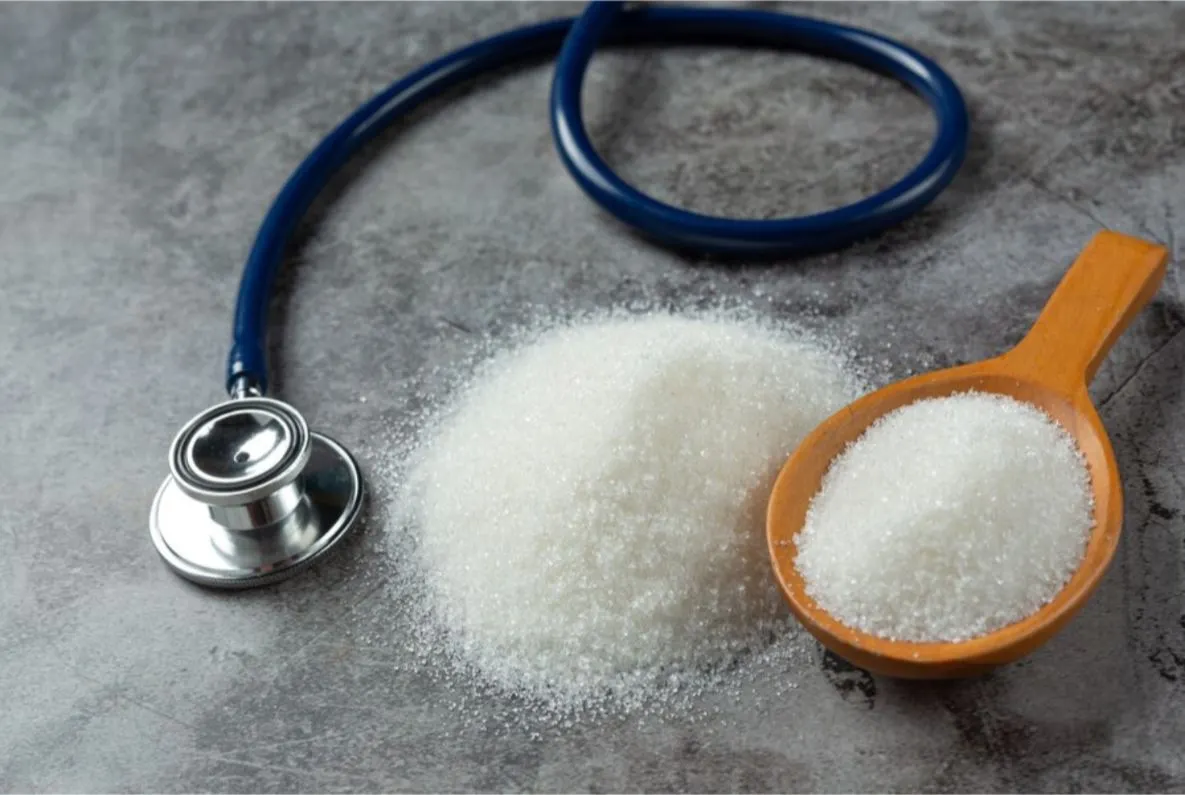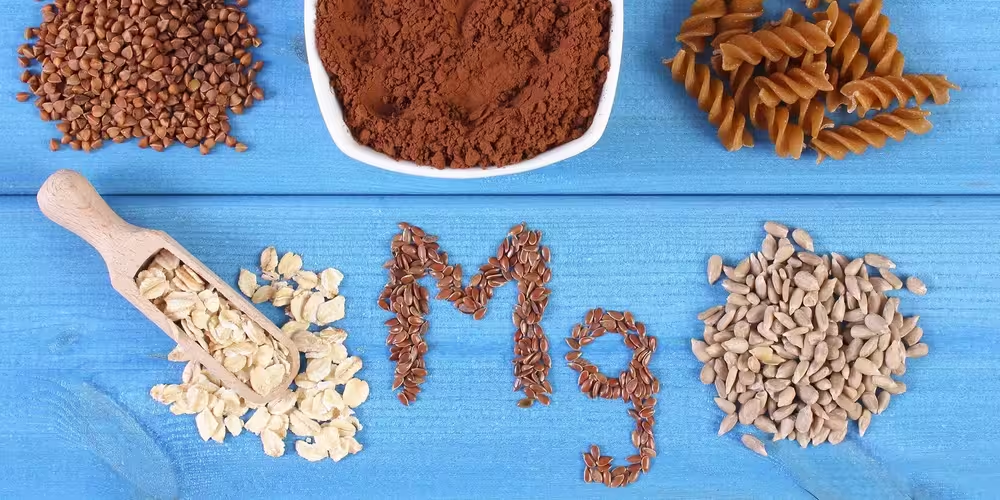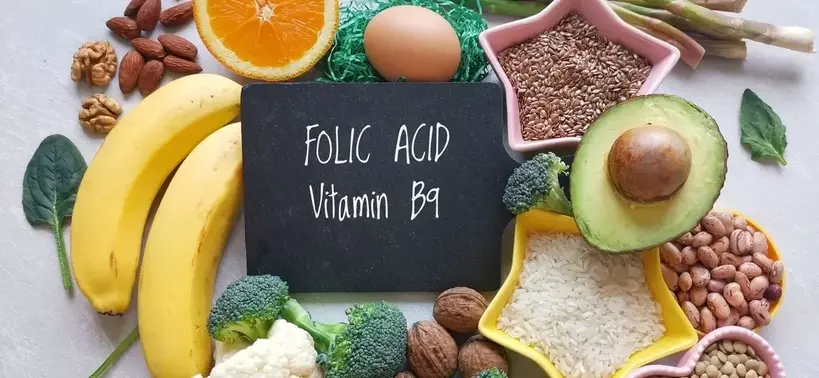Sodium nitrate has long been a topic of debate in the health and food industries. Used as a preservative in processed meats and various packaged foods, sodium nitrate plays a crucial role in preventing spoilage and bacterial growth. However, its safety has been questioned, with some studies linking it to potential health risks, while others highlight its benefits. This article delves deep into the facts about sodium nitrate, its usage, health implications, and whether it’s truly safe for consumption.
What Exactly is Sodium Nitrate?
Sodium nitrate (NaNO₃) is a naturally occurring compound found in soil, water, and even certain vegetables. It is composed of sodium, nitrogen, and oxygen, and is primarily used for its preservative properties. While sodium nitrate is naturally present in vegetables like spinach and beets, synthetic sodium nitrate is often added to processed foods, particularly meats like bacon, ham, and hot dogs.
Where is Sodium Nitrate Commonly Found?
- Processed Meats: Sodium nitrate is predominantly used in processed meats like sausages, salami, hot dogs, and cured ham to prolong shelf life and enhance flavor.
- Fertilizers: In agriculture, sodium nitrate is used as a nitrogen source to promote plant growth.
- Pharmaceuticals: It is also found in certain medications.
- Explosives: Sodium nitrate’s chemical properties make it useful in the production of explosives, particularly for mining purposes.
How Does Sodium Nitrate Work as a Food Preservative?
Sodium nitrate helps preserve food by preventing the growth of harmful bacteria, such as Clostridium botulinum, which causes botulism. Botulism is a rare but potentially fatal illness that affects the nervous system. Sodium nitrate not only prevents bacterial growth but also gives processed meats their characteristic pinkish-red color and enhances flavor, making them more appealing to consumers.
The Safety of Sodium Nitrate: A Divided Opinion
While sodium nitrate serves as an effective preservative, concerns about its safety have been raised over the years. Numerous studies have investigated whether sodium nitrate contributes to various health risks, especially cancer and heart disease. Understanding both sides of the debate can help you make informed dietary choices.
The Health Risks Associated with Sodium Nitrate
1. Formation of Nitrosamines and Cancer Risk
One of the primary concerns with sodium nitrate is its potential to form nitrosamines, which are carcinogenic compounds. When sodium nitrate is exposed to high heat, such as during frying or grilling, it can react with amino acids to produce nitrosamines. Nitrosamines are associated with an increased risk of various cancers, particularly colorectal cancer.
Key Points:
- Nitrosamines are formed when sodium nitrate is heated.
- High consumption of processed meats has been linked to an increased risk of cancer, especially colorectal cancer.
- Cooking methods, such as frying and grilling, exacerbate nitrosamine formation.
2. Impact on Cardiovascular Health
There is also evidence suggesting that frequent consumption of sodium nitrate may negatively impact heart health. High levels of sodium nitrate can interfere with the body’s ability to use oxygen effectively, leading to impaired cardiovascular function. Studies have linked excessive consumption of processed meats to an increased risk of heart disease, high blood pressure, and even stroke.
Key Points:
- Sodium nitrate can affect how the body uses oxygen, potentially leading to cardiovascular issues.
- Regular consumption of sodium nitrate-containing foods, like processed meats, is linked to a higher risk of heart disease and stroke.
- Sodium nitrate may also contribute to the hardening of arteries (atherosclerosis).
3. High Blood Pressure Concerns
Like many sodium-based compounds, sodium nitrate can contribute to high blood pressure, especially in individuals who consume a diet high in processed foods. Sodium is known to retain water in the body, which can raise blood pressure and increase the risk of hypertension.
Key Points:
- High intake of sodium from processed foods can lead to hypertension.
- People with high blood pressure should be cautious about their sodium nitrate intake.
- Sodium nitrate in excessive amounts contributes to water retention and increased blood pressure.
4. Link to Other Health Conditions
In addition to cancer and heart disease, some research suggests that long-term exposure to high levels of sodium nitrate may increase the risk of developing other conditions, such as diabetes and neurodegenerative diseases. While the evidence is not yet conclusive, these potential risks are worth considering when consuming foods rich in sodium nitrate.
The Potential Benefits of Sodium Nitrate
Despite the health concerns, sodium nitrate also offers some benefits, particularly when it comes from natural sources like vegetables. In its natural form, sodium nitrate plays an important role in the production of nitric oxide in the body, which can improve blood flow and cardiovascular health.
1. Nitrate-Rich Vegetables and Health Benefits
Vegetables such as beets, spinach, arugula, and celery contain naturally occurring nitrates, which the body converts into nitric oxide. Nitric oxide is a molecule that helps relax blood vessels, improving blood flow and reducing blood pressure. Studies have shown that consuming nitrate-rich vegetables can have a positive impact on cardiovascular health.
Key Points:
- Naturally occurring nitrates in vegetables can promote better blood flow.
- Nitric oxide, derived from dietary nitrates, helps lower blood pressure.
- Consuming nitrate-rich vegetables is associated with improved heart health.
2. Improved Athletic Performance
Some studies suggest that nitric oxide derived from dietary nitrates can enhance athletic performance. Nitric oxide helps improve oxygen efficiency during exercise, allowing athletes to perform better and for longer periods.
Key Points:
- Nitrates from natural sources like beets can improve exercise endurance.
- Nitric oxide boosts oxygen efficiency, enhancing physical performance.
- Many athletes use nitrate-rich foods to enhance their stamina and performance.
What Health Organizations Say About Sodium Nitrate
Given the conflicting evidence, various health organizations have issued guidelines on the consumption of sodium nitrate. Here’s what some of the leading organizations have to say:
1. World Health Organization (WHO)
The WHO has classified processed meats, which often contain sodium nitrate, as carcinogenic to humans. They advise limiting the intake of processed meats to reduce the risk of cancer, especially colorectal cancer.
2. U.S. Food and Drug Administration (FDA)
The FDA permits the use of sodium nitrate in foods, but it regulates the amounts used to minimize potential health risks. The FDA acknowledges that sodium nitrate is generally recognized as safe when consumed in controlled quantities.
3. American Cancer Society (ACS)
The American Cancer Society advises reducing consumption of processed meats and opting for a diet rich in fruits, vegetables, and whole grains. They emphasize the importance of limiting sodium nitrate intake to lower cancer risk.
Sodium Nitrate in Processed Foods vs. Natural Foods
It’s essential to differentiate between sodium nitrate found in processed foods and that in natural sources like vegetables. The nitrates in vegetables tend to have beneficial effects on health, while synthetic sodium nitrate in processed meats is more likely to form harmful nitrosamines during cooking.
Natural Nitrate Sources Include:
- Spinach
- Beets
- Celery
- Arugula
Synthetic Sodium Nitrate Found in:
- Bacon
- Hot dogs
- Ham
- Salami
- Cured meats
How to Minimize Sodium Nitrate Exposure
If you’re concerned about sodium nitrate in your diet, there are steps you can take to limit your exposure without compromising your food choices.
1. Opt for Nitrate-Free Products
Many companies now offer nitrate-free versions of processed meats. These products use natural preservatives like celery powder, which contains naturally occurring nitrates but is considered safer than synthetic sodium nitrate.
2. Eat Fresh, Unprocessed Meats
Fresh meats, such as chicken, beef, and pork, do not contain added sodium nitrate. These are healthier options if you’re looking to reduce your intake of processed foods.
3. Read Food Labels
Always check the ingredient list on food packages for sodium nitrate or sodium nitrite. Being aware of what’s in your food is the first step toward reducing unnecessary exposure to harmful compounds.
4. Focus on Whole Foods
Incorporating more whole foods like fresh vegetables, fruits, whole grains, and lean proteins into your diet can help minimize your intake of processed foods that contain sodium nitrate.
Tips for Safely Consuming Nitrate-Rich Foods
While it’s essential to limit your intake of synthetic sodium nitrate, not all nitrate-containing foods are harmful. Here are a few tips to ensure you consume nitrates safely:
1. Pair Nitrate-Rich Foods with Antioxidants
Consuming foods high in antioxidants, such as vitamin C-rich fruits and vegetables, can help reduce the formation of harmful nitrosamines. Consider adding citrus fruits, berries, and leafy greens to your meals when eating nitrate-containing foods.
2. Choose Nitrate-Rich Vegetables
Instead of avoiding all nitrates, focus on natural sources like beets, spinach, and celery. These vegetables offer a range of health benefits, including better blood circulation and reduced blood pressure.
The Bottom Line on Sodium Nitrate
Sodium nitrate can be both beneficial and harmful, depending on the source and how it’s consumed. While sodium nitrate found in processed meats poses risks, particularly due to the formation of nitrosamines, naturally occurring nitrates in vegetables can promote cardiovascular health.
By staying informed and making thoughtful dietary choices, you can balance the potential risks and benefits of sodium nitrate in your diet. Opt for nitrate-free alternatives when possible, increase your consumption of nitrate-rich vegetables, and remember to enjoy processed meats in moderation to reduce your overall exposure to sodium nitrate.
Looking Forward: Can We Avoid Sodium Nitrate Completely?
With increased awareness of sodium nitrate’s risks, many consumers are looking for ways to eliminate it from their diets. However, avoiding sodium nitrate entirely can be challenging, especially given its widespread use in processed foods and the food industry’s reliance on it for preservation and flavor enhancement.
Is It Realistic to Avoid Sodium Nitrate?
Eliminating sodium nitrate from your diet may not be completely practical. Many popular and convenient food items, particularly in Western diets, contain sodium nitrate. Processed meats like bacon, sausages, deli meats, and even some canned foods contain this preservative. While it is possible to avoid such foods, doing so requires careful planning and vigilance.
Challenges to Consider:
- Availability of Nitrate-Free Alternatives: While nitrate-free processed meat products are available, they may not be as widespread or affordable as their nitrate-containing counterparts.
- Dining Out: Avoiding sodium nitrate while eating out can be difficult, as many restaurants and fast-food establishments use processed meats.
- Cost: Nitrate-free or organic alternatives tend to be more expensive, making them less accessible to everyone.
How Can You Minimize Exposure Without Complete Elimination?
Although avoiding sodium nitrate entirely may be tough, you can significantly reduce your exposure by adopting certain dietary practices.
- Cook Fresh: Preparing your meals from scratch using fresh, whole ingredients is one of the best ways to avoid sodium nitrate. Focus on incorporating fresh meats, vegetables, and grains into your meals.
- Choose Natural Preservatives: Some companies offer meats preserved with natural alternatives to sodium nitrate, such as celery powder. These options can provide a similar flavor without the risks associated with synthetic preservatives.
- Limit Processed Foods: Reducing your overall intake of processed and packaged foods will naturally lower your sodium nitrate exposure. Opt for fresh, unprocessed meals whenever possible.
The Role of Sodium Nitrate in Agriculture
While sodium nitrate is widely known for its role in food preservation, its application extends beyond the food industry. Sodium nitrate is commonly used in agriculture, particularly as a fertilizer. However, its use in farming also brings environmental concerns, particularly related to soil and water contamination.
Sodium Nitrate as a Fertilizer
Sodium nitrate is used to provide nitrogen to crops, which is a critical nutrient for plant growth. It promotes healthier crops, faster growth, and higher yields. However, when used excessively or improperly, sodium nitrate can leach into water sources, leading to environmental problems like water contamination and the depletion of aquatic ecosystems.
Environmental Risks:
- Water Contamination: Excess nitrate from agricultural runoff can contaminate rivers, lakes, and groundwater, leading to problems like algal blooms and reduced oxygen levels in water bodies, which can harm aquatic life.
- Soil Degradation: Long-term use of sodium nitrate can lead to soil degradation, reducing the land’s fertility and long-term agricultural productivity.
Regulatory Oversight: How is Sodium Nitrate Monitored?
Sodium nitrate’s widespread use in both food and agriculture has led to strict regulation by various health and environmental organizations. These regulatory bodies work to ensure that sodium nitrate is used safely and within acceptable limits to prevent harmful effects on human health and the environment.
Food Regulations:
- FDA Guidelines: In the U.S., the FDA sets maximum allowable limits for sodium nitrate in food products. These regulations are designed to limit potential health risks while allowing sodium nitrate to be used safely as a preservative.
- European Food Safety Authority (EFSA): In Europe, sodium nitrate is also regulated, with strict guidelines on its use in processed meats and other food products.
Environmental Regulations:
- Environmental Protection Agency (EPA): The EPA monitors and regulates sodium nitrate levels in agricultural runoff to prevent contamination of water supplies.
- Sustainable Farming Practices: Many governments encourage sustainable agricultural practices that limit the use of synthetic fertilizers like sodium nitrate to protect the environment.
Innovations in Preservatives: The Future of Sodium Nitrate Substitutes
As consumer demand for healthier, nitrate-free foods grows, the food industry is looking for alternative preservatives that can replace sodium nitrate without sacrificing flavor, safety, or shelf life.
1. Natural Preservatives on the Rise
One emerging trend is the use of natural preservatives, such as celery powder and other plant-based solutions, to replace sodium nitrate. These alternatives are generally regarded as safer and are becoming more popular among health-conscious consumers. However, natural preservatives may not be as effective at extending shelf life as their synthetic counterparts.
Examples of Natural Preservatives:
- Celery Powder: Contains naturally occurring nitrates that are used in nitrate-free processed meats.
- Vinegar and Lemon Juice: These natural acids help preserve foods and can add flavor at the same time.
- Rosemary Extract: Commonly used in natural food preservation to prevent oxidation and spoilage.
2. Technological Advances in Food Preservation
New technologies are also being developed to extend the shelf life of foods without the use of chemical preservatives like sodium nitrate. These innovations include high-pressure processing (HPP), vacuum packaging, and advancements in food storage techniques, all of which can help reduce the need for sodium nitrate in food products.
Highlights: Is Sodium Nitrate Safe?
- Sodium nitrate is a common preservative used in processed meats and other foods to extend shelf life and enhance flavor.
- Health concerns related to sodium nitrate include the potential formation of nitrosamines, which are carcinogenic compounds linked to an increased risk of cancer, particularly colorectal cancer.
- While sodium nitrate from processed meats poses risks, naturally occurring nitrates found in vegetables like spinach and beets offer health benefits, including improved blood flow and cardiovascular health.
- Regulatory bodies such as the FDA and WHO have set guidelines for the safe consumption of sodium nitrate, but many health experts recommend limiting processed meats.
- Consumers can reduce their exposure to sodium nitrate by opting for nitrate-free alternatives, focusing on fresh, unprocessed foods, and choosing nitrate-rich vegetables that offer cardiovascular benefits.
- The food industry is exploring natural preservatives and technological innovations to reduce the use of sodium nitrate while maintaining food safety and quality.
Conclusion: Weighing the Pros and Cons of Sodium Nitrate
Sodium nitrate remains a widely used and essential preservative in the food industry, but it comes with both benefits and risks. While it plays a crucial role in preventing bacterial growth and extending shelf life, its potential to form harmful nitrosamines when exposed to high heat raises concerns about its safety, particularly when consumed in large amounts over time.
On the other hand, naturally occurring nitrates in vegetables provide health benefits, showing that not all nitrates are harmful. To make healthier dietary choices, it’s important to strike a balance between reducing your intake of processed meats and increasing your consumption of nitrate-rich vegetables.
By staying informed, reading food labels carefully, and choosing fresh, whole foods whenever possible, you can minimize the potential risks of sodium nitrate while still enjoying a balanced, nutritious diet.




